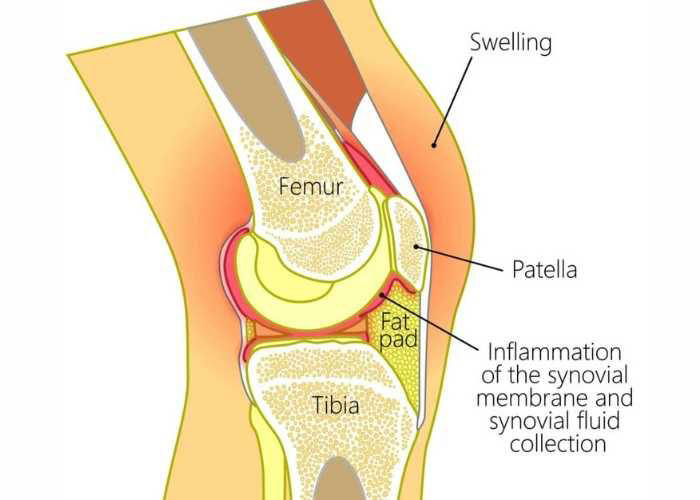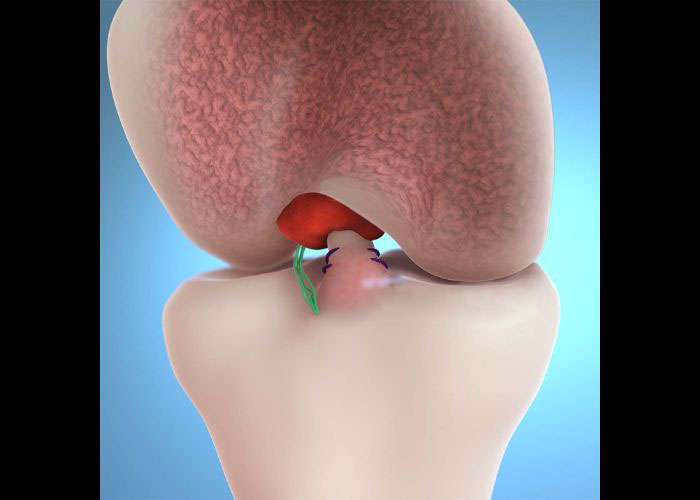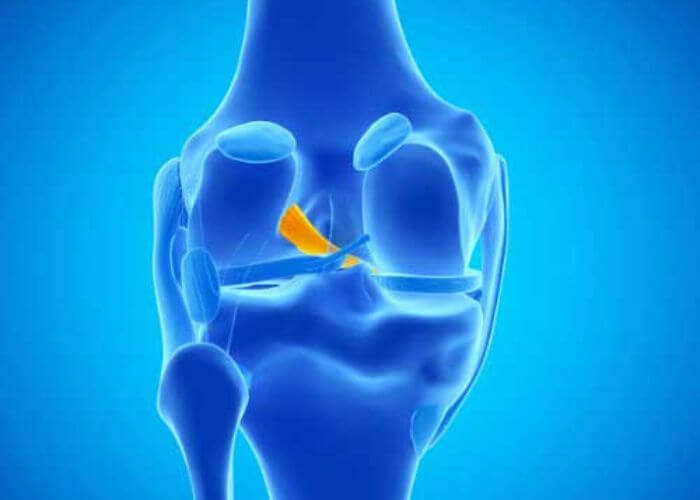What is pigmented villonodular synovitis?
The weight-bearing joints of the body (knees, hips, and ankles) contain a thin layer of tissue that secretes a thick viscous fluid into the joint space. The ends of the femur (thigh bone) and tibia (shin bone), which together form the knee joint, are blanketed in a slippery white material (articular cartilage) that facilitates painless joint movement. The fluid secreted by the thin tissue (synovial membrane) further reduces friction of knee joint movement. This synovial membrane can, on occasion, produce an excess amount of fluid and cause swelling of the lining known as synovitis. The tumor-like growth from the synovial membrane protrudes into the joint space causing painful joint movement. Over time, osteoarthritis or bone damage can develop with the excessive grinding of the mass against the articular cartilage. This condition, known as pigmented villonodular synovitis (PVNS), primarily affects the knee joints in adults between 20 and 50 years of age.
Are there different types of pigmented villonodular synovitis?
There are two different categories of pigmented villonodular synovitis (PVNS). Localized, or nodular PVNS, is limited to one area of the knee joint and the synovial membrane growth can involve the surrounding tendons of the knee joint. This form is generally easier to treat as the pain and inflammation are confined to only one area. Non-localized, or diffuse PVNS, is more common than localized PVNS and tends to be more aggressive making it difficult to treat. This type of PVNS affects the entire knee joint and can involve a complex array of symptoms. Dr. Ronak Mukesh Patel, orthopedic knee specialist serving patients in Sugar Land, Pearland, and the Houston, Texas area, has the knowledge and understanding as well as substantial experience in treating patients who have experienced pigmented villonodular synovitis.
What are the symptoms of PVNS?
Pigmented villonodular synovitis (PVNS) typically affects only one of the two knee joints at a time. Mild to moderate knee pain that worsens with movement is commonly reported with PVNS. Other common symptoms of PVNS can include:
- Pain that becomes more severe over time
- Rapid inflammation of the knee joint space
- Decreased range of motion of the affected knee
- Knee instability or the feeling of the knee “giving way”
- A “locking” or “catching” sensation in the affected knee joint
How is PVNS diagnosed?
Dr. Patel gathers a comprehensive medical history with a focus on previous knee injuries or any other knee conditions. This is followed by a thorough physical examination evaluating the affected knee for pain and any other joint deficiencies. Magnetic resonance imaging (MRI) is the best diagnostic tool to analyze the extent of synovitis and rule out any damage to the surrounding knee joint structures. Dr. Patel may request an x-ray to identify if any bone-related damage resulted from a knee injury. On occasion, a surgical biopsy of the tumor-like growth can be performed and sent to pathology for an official diagnosis.
What is the treatment for PVNS?
Currently, there are no effective conservative or non-operative treatment measures available for pigmented villonodular synovitis (PVNS). Therefore, surgical intervention is the only treatment method for patients with confirmed PVNS. The inflamed synovial membrane lining is removed in a procedure known as a synovectomy. This surgical procedure can often be accomplished with a small camera (arthroscope) and specialized surgical instruments in a minimally invasive arthroscopic technique. However, Dr. Patel may prefer an open surgical approach over an arthroscopic repair for patients with more extensive synovitis. The slightly larger incision allows Dr. Patel to view the entire knee joint while completing the necessary revisions. In addition to the synovectomy, Dr. Patel can also address other underlying knee conditions, such as loose bodies, bone spurs, or cartilage injury, in the same surgical setting.
Knee PVNS Specialist

Do you have a history of PVNS, or are you experiencing pain and swelling in the knee joint every time you move? PVNS specialist, Doctor Ronak Mukesh Patel, provides diagnosis as well as surgical alternatives to help bring you out of pain and get you back to your normal activities. Patients in Houston, Sugar Land, and Pearland, TX who have knee PVNS or a history of knee pain, trust him to diagnose their condition and offer the best treatment available. Contact Dr. Patel’s team today!









